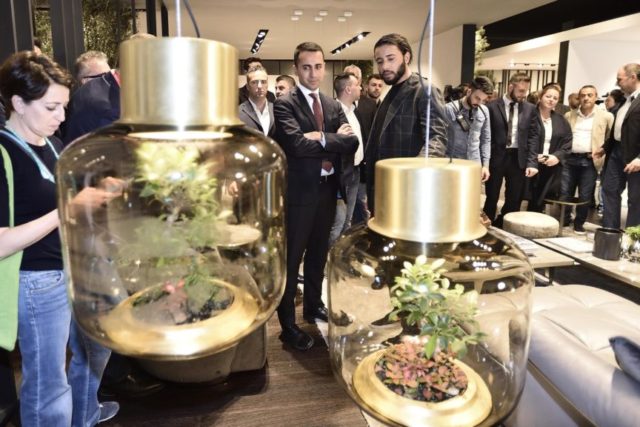ROME (AP) — Election results from one of Italy’s tiniest regions were eagerly awaited Monday for any possible shift in voter sentiment as right-wing political leaders in Rome jockey to form a government following inconclusive national elections seven weeks ago.
Residents of the southern region of Molise cast ballots Sunday for governor and regional representatives.
Normally, the outcome of a local vote in one of the country’s least populous regions has limited impact on the national political scene. But the two men who are vying to be premier following Italy’s March 4 parliamentary elections — populist 5-Star Movement leader Luigi Di Maio and Matteo Salvini, leader of the anti-migrant League — are looking for any momentum from the results in Molise.
By the time polls closed at 11 p.m. Sunday, some 52 percent of eligible voters had cast ballots, regional authorities said, down from about 62 percent turnout in the previous regional election in 2013.
Results were expected later Monday.
The 5-Star Movement, which bills itself as anti-establishment, emerged as Parliament’s largest party in the March general election. It made huge gains with voters in southern Italy, where chronically high unemployment has fed voter resentment of establishment parties.
Salvini’s party, which is dominant in the country’s north, emerged as the top vote-getter in a right-leaning, multi-party alliance that together controls more seats in Parliament than the 5-Stars do.
But neither force alone has enough seats to govern.
President Sergio Mattarella was taking the weekend to reflect on his next move after the latest round of consultations, the presidential palace said. The discussions last week failed to yield a political formula that would guarantee Italy’s next government could command a majority in Parliament.
As head of state, Mattarella either will tap someone eventually to try to forge a governing coalition out of the country’s bickering parties or turn to a respected figure above the political fray to lead some kind of “institutional” government with a lifespan likely to be short. The president also could conclude there is no possibility of ending the impasse and another election is needed.
The stalemate presents Salvini with a dilemma. Should he stay true to the center-right alliance that made his party a junior partner in all three of media mogul Silvio Berlusconi’s governments, or break with the ex-premier and cut a deal with Di Maio?
Berlusconi’s loathing for the 5-Stars was plain during the election campaign, when he branded them as dangerous for democracy. Last week, he ruled out any possibility of his party allying with the Movement, denigrating its politicians as fit only to clean toilets.
In an interview published in Sunday’s Corriere della Sera newspaper, Berlusconi dismissed the prospect of Salvini bolting their alliance to join forces with Di Maio.
“Frankly, I don’t see this danger,” Berlusconi said.
Molise’s outgoing governor is a Democrat, the lead party in Italy’s current caretaker government.
___
Frances D’Emilio on Twitter: a href=’http://www.twitter.com/fdemilio%3c’www.twitter.com/fdemilio/a

COMMENTS
Please let us know if you're having issues with commenting.